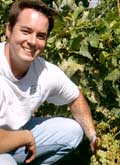Earlier this year they became the first nation in America's weight class to become completely
energy independent. While we spend precious blood and treasure fighting apparently endless wars over the oil-rich Middle East, Brazil, a third-world nation roughly the size of the continental U.S. and populated by close to 200 million people, meets all it's energy needs without importing a drop of oil. They can do this thanks in great part to the home grown and produced sugar cane ethanol powering millions of their vehicles. Why don't we do this in the U.S.? Sugar cane won't grow in Iowa, but that doesn't mean we don't have options. It's a more expensive process, but we could probably accomplish much the same thing in this country with corn ethanol and other renewable energy sources, and as a bonus it would be a great boon to long-suffering midwestern farmers. There are countless ways we, like our neighbors to the south, could work to throw off the yoke of foreign oil addiction. Or we can continue to sacrifice our security and the
future health of the planet (not to mention billions of tax dollars and the lives of our military men and women) by remaining utterly dependant on foreign sources of energy for the foreseeable future.
But as if that weren't enough, today Brazil has made another bold move to preserve its Amazon Rainforest by placing a chunk the size of my home state of Alabama into
protected status. I don't have all the details, but apparently parts of the new preserve would be open only to research, while other portions would allow for some closely managed logging and for sustainable use by local communities. This move won't stop deforestation in Brazil; that mostly goes on in the southern Amazon, which continues to be hacked up at an alarming rate despite the fact that "Saving the Rainforest" was something of a
cause celebre a few years ago. But this is definitely a step in the right direction, plus it gives treehuggers like me a sense of optimism. Maybe one day we here in the first world will catch on that developing renewable, domestic energy sources
and valuing environmental preservation are not only compatible concepts, they're both pretty good ideas.
Since we're on the subject of the Amazon and men who championed conservation, if you're looking for a great read check out
The River of Doubt by Candice Millard. When one of our greatest Presidents, Theodore "Teddy" Roosevelt, lost the 1912 election he took the defeat very personally and decided to deal with his depression by leading an expedition into an unexplored region of the Amazon jungle and down a previously uncharted river, the eponymous River of Doubt. They just don't make men like TR anymore--these days most guys deal with that innevitable mid-life sense of fading relevance by buying a sportscar and dating a much younger woman. Roosevelt chose to risk his life (and that of his son Kermit--yes, that really was his name) on a months-long trek through a region of South America that at the time was populated only by dangerous animals, semi-hostile Indian tribes, and ungodly numbers of bitings and stinging insects. The book is not only a fantastic adventure but it's also an excellent history lesson, telling the story of the expedition from the point of view of both American and Brazillian members and brining to life the early 20th Century, a time when the last blank spots on the map were finally filled in. In the modern era of GPS navigation and satellite communication there may not be any unexplored rivers left in the world, but as long as foreward thinking nations have the political will to do the right thing, then at least the Rainforest itself will survive to benefit future generations.





